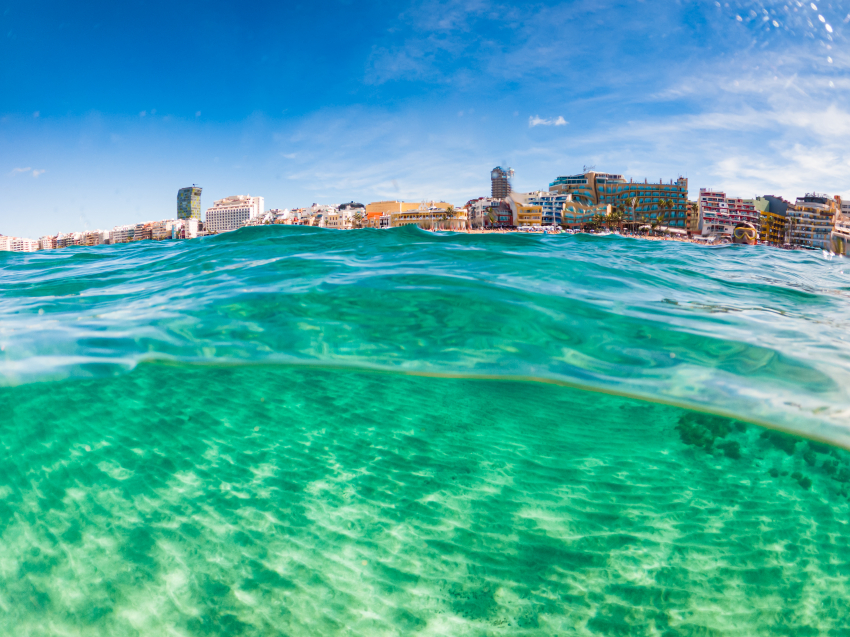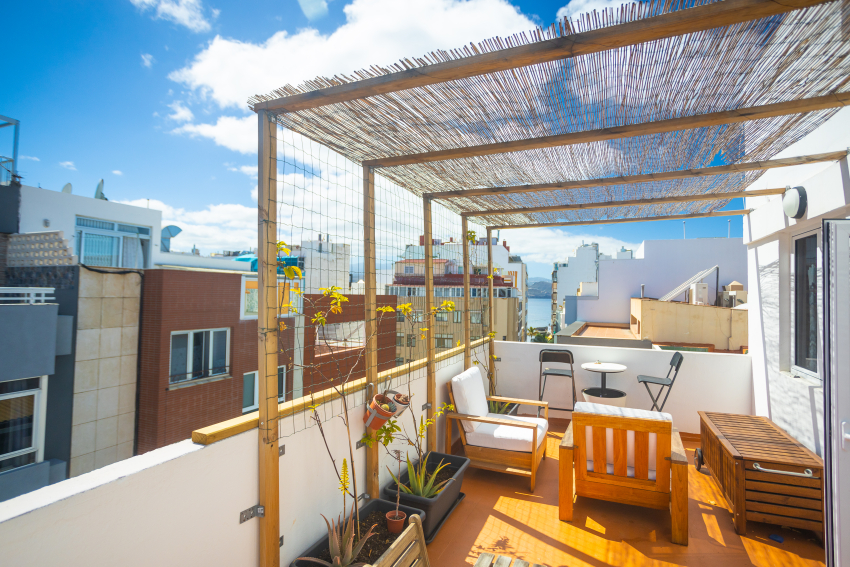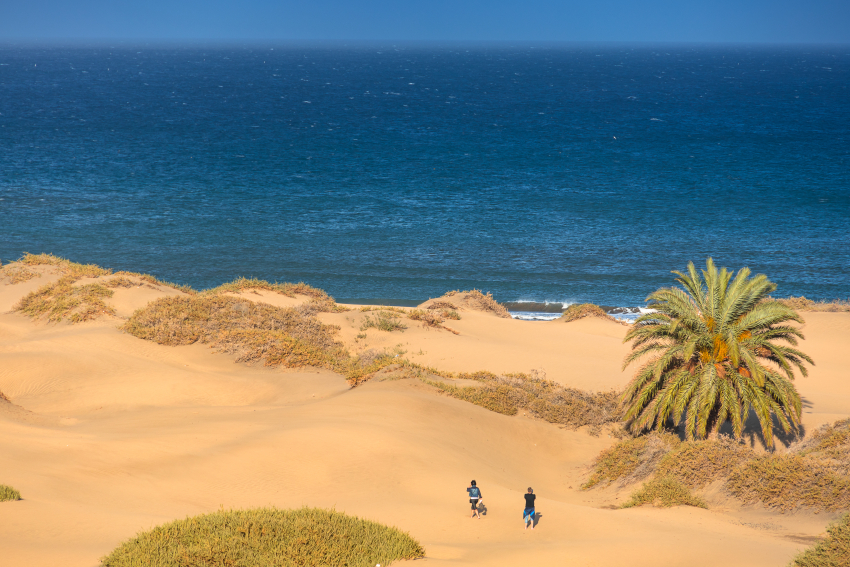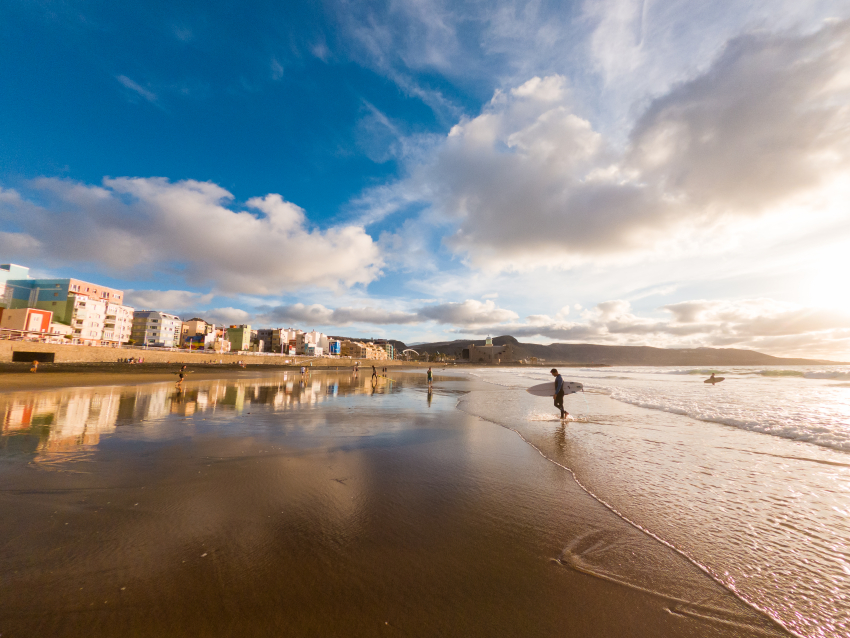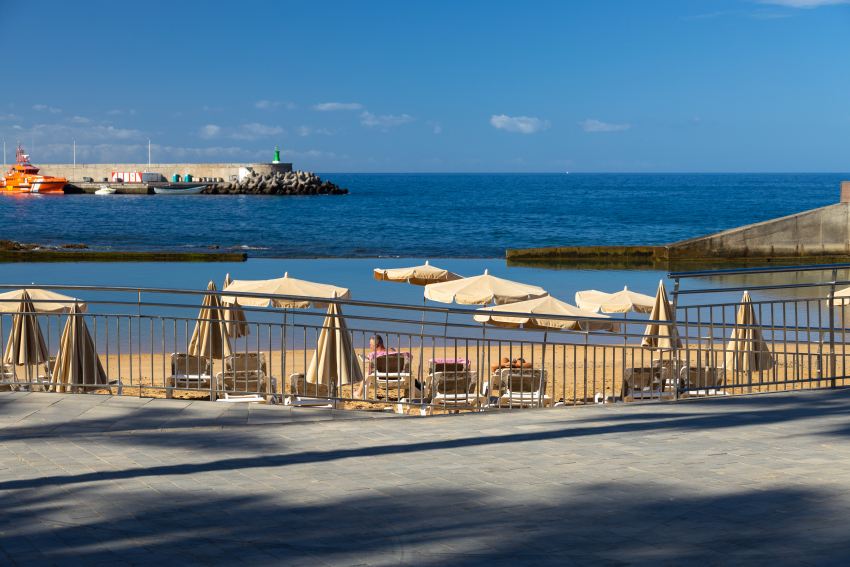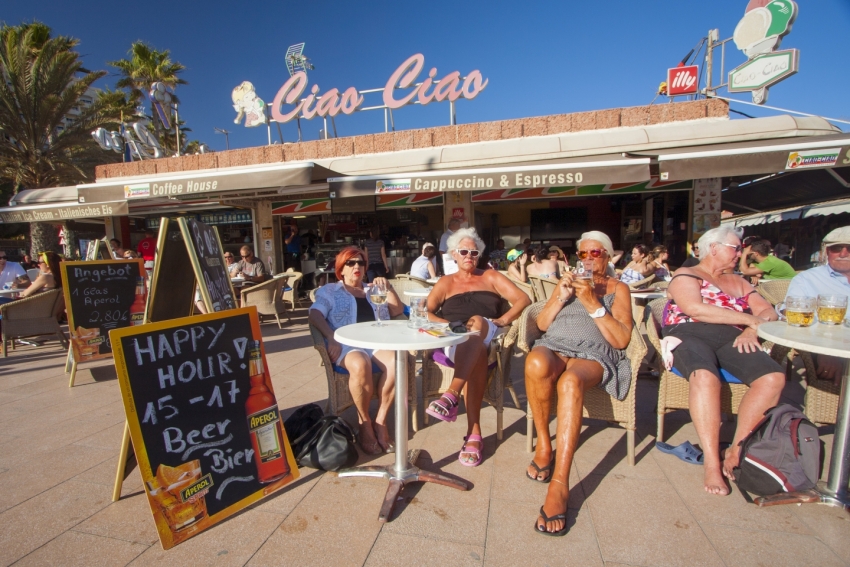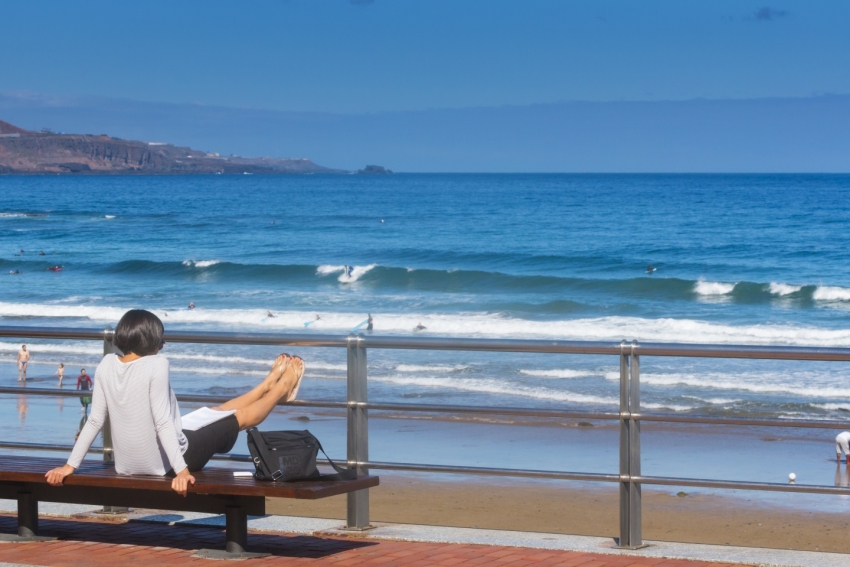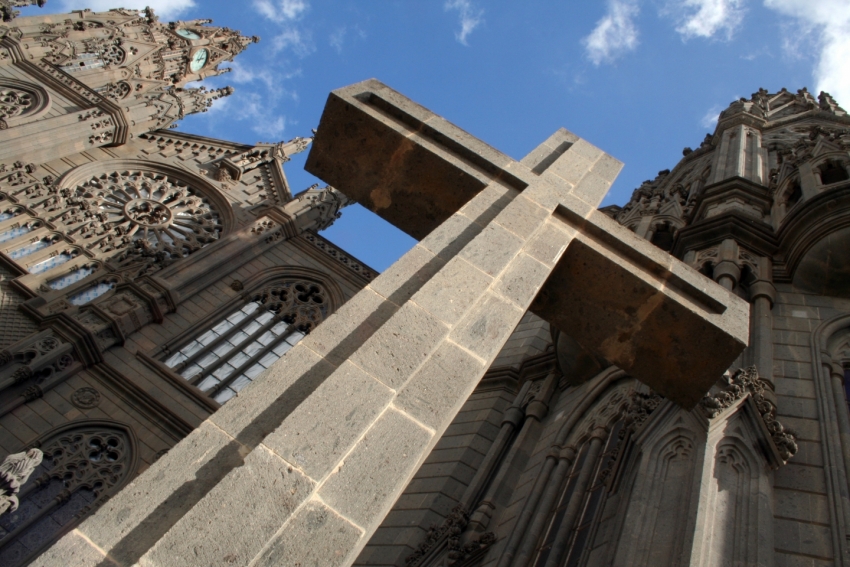Living In Gran Canaria: Resident Discounts & Perks
There are lots of perks to living in Gran Canaria, including the weather, the cheap petrol and wine, and the general smugness that it gives you. Then there are the Gran Canaria resident discounts …
Here’s our guide to the top discounts that Gran Canaria residents are entitled to.
Gran Canaria resident discounts on inter-island transport
Once you get your Gran Canaria residencia, make sure you register for the 50% discount on travel between the Canary Islands. Most municipios allow you to do it online, but the system isn’t perfect so it may not recognise you straight away.
If you have a problem, just head to your ayuntamiento and ask for “el certificado de residencia para bonificación de viajes”. It costs a few euros and you need to show it to each transport company at least once to get into their system as a resident.
If you book resident fares without a certificate, the travel companies will ask you to pay up, or even refuse you passage.
Travel To Mainland Spain for Gran Canaria residents
Canary Islands residents get 50% of travel between the islands and mainland Spain. However, be careful when you book an indirect flight through a Spanish airport. Some airline websites apply the discount to the second leg, then get in a huff when you check in.
The discount is only valid between the Canaries and your first Spanish stop.
Taking a car from Gran Canaria to the Mainland? The 50% discount also applies to ferry travel.
Money off the Yellow Submarine and other tourist attractions
Most tourist attractions offer a resident discount. For example, if you book the Yellow Submarine as a resident you get a 20% discount. Add this to the 10% discount you get for booking online, and you’ve saved a good chunk of change.
Frequent use tickets for residents
Another offer to look out for is frequent user tickets from theme parks like Palmitos Park. You can often buy a ticket that gives you unlimited trips for the cost of two or three visits. Not much use if you’re a tourist, but pretty good value if you are resident. The Angry Birds Park in Puerto Rico does an annual use ticket that is great value if you live close by and can use it regularly.
Discount museum & gallery entry
Lots of Gran Canaria’s museums offer cut-price entrance to residents. All you need is your green NIE form or card.
Also, look out for free entry days at Gran Canaria museums. For example, many museums are free on the first Sunday of the month.
Living In Gran Canaria: Getting A Mortgage
 Getting a mortgage as a Gran Canaria resident is not a complex process but you do need to do a fair amount of paperwork and have a decent amount of cash to cover the deposit and fees.
Getting a mortgage as a Gran Canaria resident is not a complex process but you do need to do a fair amount of paperwork and have a decent amount of cash to cover the deposit and fees.
Article by Las Palmas estate agent Laura Leyshon.
Getting a Gran Canaria mortgage
To get a mortgage you must have a 10-20% cash deposit (plus the 10% in cash that it costs to buy a property in Gran Canaria) and prove to the bank that you can make the repayments. In general, they only lend if your liabilities (existing loans, mortgage payments) represent less than 35% of your monthly income.
For example, if you want to take out a mortgage which will be 350 euros a month, you must earn 1000 euros a month and not have any other loan payments. They will check your ability to pay by requesting the following documentation…
- Wage slips from the last 3 months
- Bank statements for the last 6 months
- If you are self-employed, copies of your last 3 years of accounts (with an auditor’s stamp) and copies of you last 12 month’s business bank statements and your last 6 months personal bank statements).
As always, you will need to feed the photocopier with your ID, residencia and the one piece of paper you didn’t bring with you.
Banks in Gran Canaria do NOT take future rental income into account when calculating the amount of money they will lend you to buy a property.
Spanish banks currently offer mortgages of 60-80% of what a property valuation firm says that it is worth (you pay about 300 euros for this valuation as part of the mortgage application process).
Most banks offer variable rate mortgages that last from between 12 and 40 years. Fixed rate mortgages have been at histrically low rates for several years but have risen in 2022.
Gran Canaria mortgage interest rates
Interest rates in Spain vary, but are generally a little lower than in the UK. The rate is set using the EURIBOR interest rate published by the European Money Market Institute.
Your mortgage rate will be expressed as EURIBOR plus a percentage (eg. Euribor más 0.75%) and varies depending on whether the EURIBOR rises or falls. With the rate currently negative, mortgages in Spain are at rock bottom levels.
It is always worth applying to several banks (you only have to gather the paperwork once) as the rate, property valuation, and other conditions vary considerably between banks and you never quite know what headquarters in Madrid (all applications are sent to Madrid for approval) will say.
There is no harm in playing the banks off against each other.
Ask for a copy of one bank’s offer and then take it to a different bank to see if they can improve the offer – they often will. Then take the improved offer back to the original bank – you may get a pleasant surprise.
Gran Canaria mortgage costs
During the mortgage application process, you have to pay for a valuation by a professional valuation firm (200-300 euros) and you will also pay a gestoria (bureaucracy consultant/paperwork company) to handle all the paperwork (around 250 euros); your bank will assign one, you’ll pay for it.
Spanish banks have a habit of attaching other products to their mortgages to boost their profits. For example, you will have to pay for annual life insurance that covers the entire mortgage, and property insurance that covers its replacement value in the case of a fire, etc. Often you get the best interest rates if you agree to their add-ons.
Non-resident mortgages in Gran Canaria
Non-residents need a minimum deposit of 30% plus the 10% in fees and taxes that you need to buy a property. That’s a minimum of 40% of the value of a property befoe you can get a mortgage as a non-resident.
You may also be asked to provide an aval (guarantor). This will be somebody usually based in Spain who agrees to pay in the event of you being unable to.
Save money on transfers by using a currency broker like Currencies Direct if you are from a non-Euro country. They are far better value for money thank banks.
New build mortgages in Gran Canaria
As well as paying slightly more IPT tax (7% rather than 6.5%), buying a new build property has the disadvantage that the constructor (builder) or promotor (promoter) often has a mortgage deal agreed with a particular bank. The rates and conditions are fixed and you have to accept them.
Changing mortgages in Gran Canaria
With rates as low as they are at the moment, there is rarely much benefit to changing your mortgage provider as the process is long and expensive (fees are around €3000). However, if you are locked into a mortgage with high rates, it is worth looking into.
The Clausula Suelo
Spanish banks used to put a floor under the interest rate on their mortgages which basically locked in their profits if interest rates dropped. However, the EU has ruled this floor, known as the clausula suelo, illegal and told the banks to scrap it and TO RETURN ALL THE EXTRA, ILLEGAL INTEREST THEY COLLECTED.
If you have a mortgage in Spain with a clausula suelo, you are entitled to go to your bank and demand that they return all the excess interest you paid over the years.
These sums can be substantial so don’t expect your bank to hand it over without a scrap; They aren’t exactly falling all over each other to obey the courts.
Rather than give you the cash, the bank knocks what they owe you off the outstanding mortgage debt.
For the latest on this story, please read this article.
The best Gran Canaria mortgage banks
Mortgage offers change all the time so we recommend that you shop around extensively and apply at several different types of bank…
The traditional Spanish banks such as BBVA and Santander
The local banks such as Bankia and / or a Spanish caja (equivalent to a building society and just as endangered).
A foreign bank such as Bankinter and Deutsche Bank
An alternative bank such as EVO.
Online banks such as ING Direct.
Specialist mortgage brokers that work with estate agents rather than retail banks.
Help getting a Gran Canaria mortgage
If you speak fluent Spanish and know the local property market, feel free to ignore this advice and use a local mortgage broker or go direct to the banks.
Use a good local estate agent when you buy a Gran Canaria property: They will help you with the process of getting a Gran Canaria mortgage and make sure that you pay a fair price for your property.
Best of all, estate agency services are free for the buyer as the seller pays all their fees.
In Las Palmas and north Gran Canaria, talk to me at Las Palmas Property.
In south Gran Canaria, just go to Cárdenas Real Estate.
Living In Gran Canaria: Really Useful Websites
Here’s a list of useful websites about Gran Canaria that we use all the time.
Living In Gran Canaria: Opening A Bank Account
Getting a bank account in Gran Canaria is a doddle if you have an NIE or residencia. Just pick a bank and give them your NIE number, passport and a proof of address (utility bill, rent contract).
Then sign a lot of bits of paper and you have an account.
In theory, you can open a non-resident bank account with a passport. You may have to try several banks as some won’t do it without a NIE certificate. Commissions are high, so swap over to a resident’s account as soon as you can.
Which Gran Canaria bank to choose?
There isn’t much between them, but bear these factors in mind.
Smaller banks have few cashpoints and charges for withdrawing money can be eye-watering.
Some banks, such as Santander, don’t charge monthly commissions if you pay in your salary or pension.
Queues in bank branches get long, so pick a bank with a decent online banking system.
Here’s a selection of the main banks in Gran Canaria
La Caixa
La Caixa took over Bankia and now has more offices and cashpoints than any other Gran Canaria bank. Big branches have English-speaking staff and there is English speaking telephone support and English internet banking.
Santander Central Hispano
The same company as Santander in the UK, but you can’t transfer an account or anything convenient like that. Santander has plenty of Gran Canaria branches, a decent network of ATMs, and offers commission-free banking if you have a salary.
Santander has plenty of Gran Canaria branches, a decent network of ATMs, and offers commission-free banking if you have a salary. It even pays interest on your current account balance.
ING Direct
Dutch bank with a couple of Las Palmas branches. ING has an excellent online bank system and even decent queue management in its branches. A good mortgage option.
EVO Banco
A specialist online bank with a handy branch on Mesa y Lopez.
Bank Inter
A bank that does offer good mortgage terms to non-resident buyers
BBVA
Like Santander, but blue instead of red.
Barclays
The same company as Barclays in the UK, but you wouldn’t know it. If you have a UK Barclays account there is no advantage opening a Spanish Barclays account.
Share this:
Living In Gran Canaria: Setting Up A Tax Efficient Company (ZEC)
The Canary Islands offer the most generous tax regime in the whole of Europe for companies and entrepreneurs.
Gran Canaria is part of the ZEC, or Canary Islands Special Zone. What’s special about it?
Well, open a business in Gran Canaria and tick all the boxes, and you pay just 4% corporate income tax and gets a slew of other benefits.
What is the ZEC?
The ZEC is a low-taxation zone focused on the Canary Islands. Its main purpose is to encourage European businesses to move to the Canaries, or set up subsidiaries here, to provide jobs and experience to local people and boost the economy. In exchange, it offers businesses one of the lowest corporate tax regimes in Europe.
The ZEC has the full support of the EU, the Spanish tax authorities, and the Canarian Government. It stands out as one of the few legally sound low-taxation centres in Europe. If you are planning to set up a Gran Canaria business, you need to know about the ZEC.
It’s also well established with over 400 ZEC companies, including Rolls Royce, currently operating in the Canary Islands. ZEC entities employ over 4500 people on the islands.
The advantages of a ZEC business in Gran Canaria
ZEC companies pay Spanish Corporate Income Tax at 4% (the EU average is 23%).
ZEC companies can pay dividends to their EU subsidiaries of parent company without any withholding tax. This is thanks to the Parent-Subsidiary Directive of the European Union.
ZEC firms also benefit from the 85 double taxation treaties established between the EU and other countries.
A ZEC entity is also exempt from Property Transfer Tax and Stamp Duty (ITP-AJD).
Imports made by ZEC companies, and goods and services traded between them, are exempt from Canary Islands General Indirect Tax (IGIC). Canarian IGIC is the equivalent of VAT and is currently 7%.
Why set up a ZEC Gran Canaria business
Gran Canaria has the largest city in the Canary Islands in Las Palmas de Gran Canaria, and the largest port. It’s also well connected to the rest of Europe and to Africa by air, and has a large, and booming tourism industry and a growing oil-services sector.
It’s the logical choice of location to set up a ZEC business as it has the best infrastucture and support services in the Canary Islands (Tenerife may well disagree about this). Salaries are low by European standards, and there is a healthy pool of university-educated Canarians looking for work.
From a lifestyle point of view, Gran Canaria takes some beating. It has excellent weather, a huge range of quality restaurants and bars and all the services and security you’d expect from a European city. In short, an excellent place to live and work.
What are the requirements for setting up a ZEC business in Gran Canaria?
A ZEC company must be a new corporate entity based in the Canary Islands.
At least one of the administrators or legal representatives must reside in the Canary Islands.
A ZEC entity must make a minimum investment of 100,000 euros (in Gran Canaria and Tenerife) or 50,000 euros (in the other Islands) in fixed assets within the first two years. This investment can be in Gran Canaria property.
ZEC companies must create 5 jobs (in Gran Canaria and Tenerife) or 3 (in the other islands) during the first six months, and maintain this minimum number of employees on average.
ZEC entities must also be in one of these sectors or service industries.
NOTE: The list of approved sectors is long and most companies will be able to find a way to fit their activities into the ZEC rules. Service companies can set up anywhere in the Canary Islands.
How do I set up a ZEC company in Gran Canaria?
The first stage is to make contact with the ZEC organisation. They will provide all the information you need to get set up, a road map of procedures, and ongoing support.
There is a fair amount of paperwork associated with the process (you need to get your business activity approved, start a local company, register with tax authorities, etc) so it takes months rather than weeks. The best way to get this done effectively is to use a quality local business consultant, such as Montelongo Asesores, to get all the paperwork sorted.
We’d also advise you to network with people who have already established ZEC businesses on the island. They will give you invaluable advice about how to set up in Gran Canaria.
As for costs, it’s €850 to inscribe your company in the ZEC registry and between €1300 and €1500 per annum thereafter.
Living In Gran Canaria: Property Tax Guide
 Buying a property in Gran Canaria costs about 10% of the price you pay once you factor in taxes and fees. Selling a property involves some costs but these only add up if you profit from the sale. The annual tax burden of owning a property in Gran Canaria is low.
Buying a property in Gran Canaria costs about 10% of the price you pay once you factor in taxes and fees. Selling a property involves some costs but these only add up if you profit from the sale. The annual tax burden of owning a property in Gran Canaria is low.
Article by Gran Canaria estate agent Laura Leyshon from Las Palmas property.
Here is a summary of all the annual property taxes you have to pay in Gran Canaria.
IBI: An annual property tax set by the local Ayuntamiento that is between 0.5% and 1% of the official value of your property (much lower than the market value). The IBI rate in Las Palmas is currently 0.73% while other municipalities charge slightly different rates..
Other ongoing costs...
IBI is the only monthly tax cost that you have to pay in Gran Canaria (San Bartolomé de Tirajana charges an annual rubbish collection tax). However, if you live in a building or a complex you have to pay a monthly communidad fee which is your share of costs like communal electricity, lift and pool maintenance and insurance.
The amount varies depending on the building and the facilities and services it offers.
Non-resident property owners must pay income tax on any rental income, plus IGIC (VAT) if they rent their property on a short -term basis. Even if a non-resident property owner doesn’t rent out their property, they still have to pay a small annual Sunshine tax.
Some municipios, such as Mogán charge an annual rubbish collection fee.
Gran Canaria property taxes at purchase
ITP or re-sale purchase tax
Buyers of re-sale property (as opposed to a new build) are required to pay the Impuesto de Transferencia de Propiedad which is 6.5% of the price paid for the property.
New Properties purchase tax
This is currently 7% if the house is finished or is being built at the time of the purchase. It is paid by the buyer.
A property buyer only ever has to pay one of the above two taxes.
Other Gran Canaria property purchase fees
While not strictly taxes you also have to pay Notary fees (around 300 euros for most properties, more if you buy with a mortgage) and Property Registry fees (around 300 euros). Most buyers use a Gestoria to handle the paperwork associated with a purchase (they charge around 250 euros).
Along with the 10% taxes and fees, you’ll need a minimum deposit of 10-20% if you get a mortgage (30% for non-residents) and 300 euros to pay for a valuation of the property you want to buy. Spanish banks also insist that you take out life insurance and property insurance at the same time as the mortgage. Legally your mortgage provider cannot force you to take out their insurance. However, it makes the whole process smoother if you do. You can always change to a better deal after a year.
Gran Canaria property taxes at sale
Plusvalía municipal
Paid by the seller to the Ayuntamiento where the property is located, this is also called the impuesto sobre el incremento de valor de los terrenos de naturaleza urbana (IIVTNU).
You pay plusvalia on the increase in value of the land that a property occupies during the period that you own it (capped at 20 years) and the amount varies depending on the period of ownership and the rates set by the Ayuntamiento.
Incremento patrimonial
Capital gains tax paid to the Spanish Treasury; Based on the difference between the sale price and the price paid by seller when he/she originally purchased the property (you can offset costs of improvements so keep your new kitchen and bathroom facturas).
As of 2016, the capital gains tax rate in Gran Canaria is 19% for the first 6.000 Euros, 21% from 6.000 to 50.000 Euros and 23% from that last amount upwards.
However, one advantage of the fall in Gran Canaria property prices over the last 10 years is that few sellers have to pay capital gains tax.
Tax exemption
Avoid paying capital gains tax by reinvesting the money from the sale of a main residence property into another main residence property within two years. EU nationals, even non-residents, can also avoid this tax if they buy a new main residence property anywhere in the EU within two years.
To claim the exemption you need to be able to prove that a property has been your main residence. A good reason to get a ‘certificado de empadronamiento’ certificate from your Ayuntamiento as soon as you buy your house.
Mortgage cancellation fees
If you cancel a mortgage when you sell a property, expect to pay 1% or more of the outstanding balance for the privilege, plus up to 1000 euros to register the cancellation at the Notary and Property Registry. You can sometimes pass the mortgage on to the buyer if the terms are acceptable.
Living In Gran Canaria: Getting A Teaching Job
Teaching English has always been one of the main ways foreign residents have lived and paid their way in Gran Canaria. While things are getting hard for unqualified teachers, there are always jobs around.
Living In Gran Canaria: Buying A Car
Buying a second hand car in Gran Canaria is a fairly simple process provided you know some Spanish and a bit about cars. If not, get some help.
6 Reasons Canarians Often Look At Tourists Like They Are Aliens
With over three million tourists visiting Gran Canaria every year and less than a million locals, you'd think Canarians would be used to the crazy things their guests do.
10 Things Only People Who Live In The Canary Islands Will Understand
Gran Canaria Info recommends:
- Default
- Title
- Date
- Random

